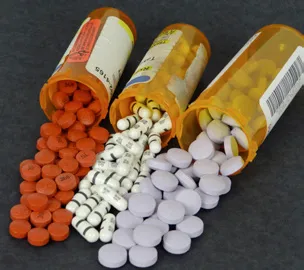The Trans-Pacific Partnership and its Impact on the NZ Health Sector
Dean Conger - 1st February 2015

A very important process is currently flying below the public radar and I think it requires urgent scrutiny. The Trans-Pacific Partnership (TPP) is a regional trade treaty under negotiation between twelve diverse low, middle and high income countries of the Pacific Rim: Australia, Brunei, Canada, Chile, Japan, Malaysia, Mexico, New Zealand, Peru, Singapore, the United States of America, and Vietnam. Formal negotiations have been underway since 2008, since which time new negotiating countries have come onboard. Once signed, the TPP will be a legally binding agreement that regulates trade – and by extension practices – between these nations indefinitely. Although amendment and new members will be possible, the TPP is intended to be a “landmark, 21st-century trade agreement”, establishing new norms for global trade.
New Zealand’s Pharmaceutical Management Agency (PHARMAC) has been highly successful in facilitating affordable access to medicines through a combination of aggressive price negotiations, innovative procurement mechanisms, and careful evaluation of value for money. Recently the US government, through the establishment of a series of bilateral and multilateral ‘free’ trade agreements, has attempted to constrain the pharmaceutical access programs of other countries in order to promote the interests of the pharmaceutical industry.
The Trans-Pacific Partnership Agreement (TPPA) represents the latest example; through the TPPA the US is seeking to eliminate therapeutic reference pricing, introduce appeals processes for pharmaceutical companies to challenge formulary listing and pricing decisions, and introduce onerous disclosure and “transparency” provisions that facilitate industry involvement (?!) in decision-making around coverage and pricing of medicines (and medical devices). The US agenda, if successfully prosecuted, would be likely to increase costs and reduce access to affordable medicines for New Zealanders. This would in turn be likely to exacerbate known inequities in access to medicines and thus disproportionately affect disadvantaged population groups, including Maori and Pacific peoples.
Trade agreements can constrain preventative health policy by empowering foreign investors to sue governments if changes to health regulations interfere with the value of an investment or its anticipated profits (known as ‘Investor State Dispute Settlement’ or ISDS). While earlier World Trade Organisation arrangements allowed lawsuits between member governments, agreements such as the TPP extend this right to foreign individual and corporate investors. This means that foreign investors based in any one of the 12 TPP countries could challenge domestic regulations, policies or even court decisions that are perceived by them to result in a significant loss of their investment’s value or expected profits.
Negotiations thus far have been carried out in secret, without public comment or input. Available information has come from copies of draft provisions leaked to the press and posted on WikiLeaks.
Doctors Without Borders has raised alarm bells regarding the following provisions as they feel the impact on public health in developing countries will be severe. They state that provisions in the TPPA will likely result in:
- Lowering the bar of patentability – require patenting of modifications of old medicines, even in the absence of therapeutic benefits.
- Patenting of medical methods – require the patenting of surgical, therapeutic and diagnostic methods.
- Prohibit pre-grant oppositions – forbid challenges to weak or invalid patents until after they have been granted.
- Patent term extensions – require extending 20-year patent monopolies by at least five years to compensate for delays in the regulatory process.
- Patent linkage – prohibit national drug regulatory authorities from approving generic medicines until patents have expired.
- Require new forms of IP enforcement – grant customs officials new powers to detain shipments, including in-transit shipments, suspected of non-criminal trademark infringements; require mandatory injunctions for alleged IP infringements; raise damages amounts.
I am skeptical of the assurances provided by the NZ negotiators that the public health will be protected. At the very least, trade negotiations that affect public health must be conducted with adequate levels of transparency and public scrutiny, including providing access to the negotiating texts. I suggest you contact your MPs…SHOW ME THE DATA!